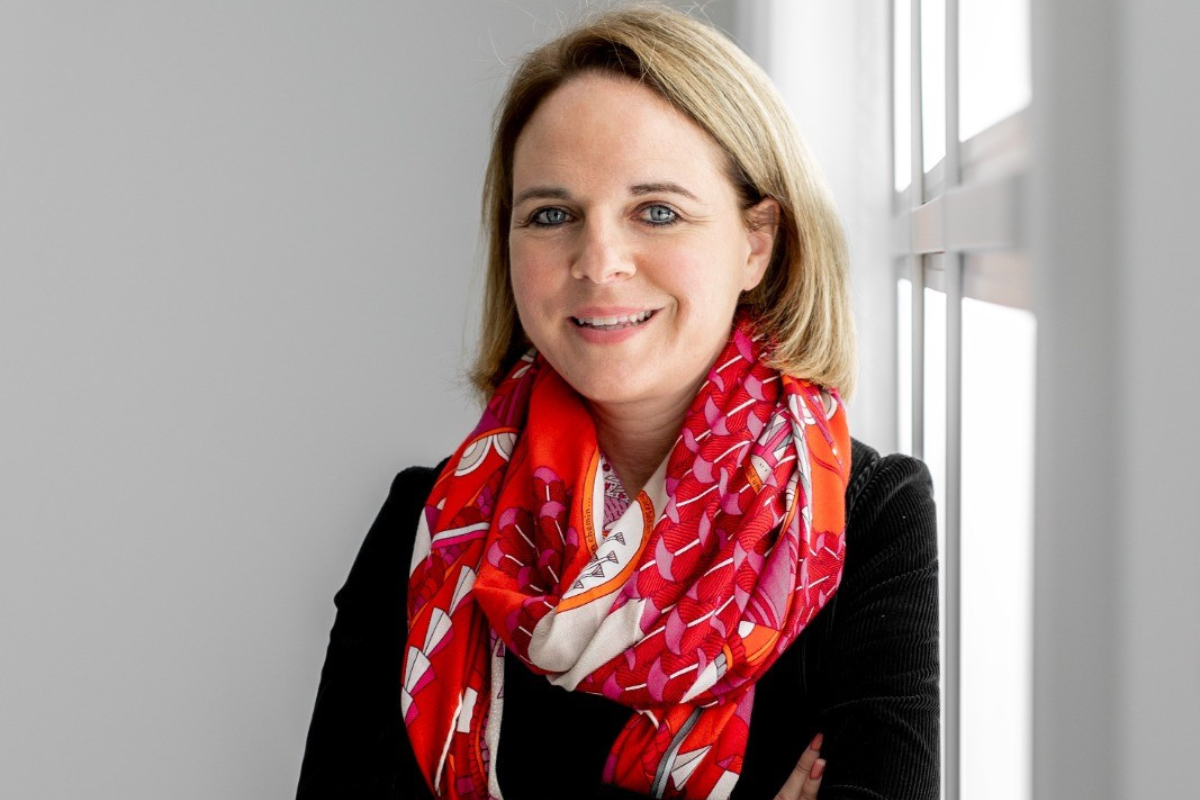A Conversation with Corinne Cahen

LUX WMN
Photograph: Minister Cahen, Minister for Family Affairs and Integration. Credits: KARY/photography
Written by Revathy Menon
“I felt the laws in Luxembourg were old-fashioned, things didn’t happen fast enough especially in the areas of parental leave, work-life balance, accessibility, and the fight against poverty. I was a successful businesswoman, President of the Union Commerciale of the City of Luxembourg, but I felt I could do more in politics,” Corinne Cahen, former Minister for Family and Integration and the Greater Region told me, explaining why she got into politics.
“I’ve met so many women who made the wrong decisions in their life,” she continued. This was one of many times that sentence would come up during this interview, especially when she spoke of her work and ideas for empowering women. “Politics has to offer something to young parents, women, so they don’t have to make such wrong and difficult decisions.”
Cahen’s view on women and women’s empowerment was a big reason behind my wanting to interview her, but there were also others. For one, Cahen is a popular face in the government. She lead a ministry that is in the thick of the new, dynamic and inclusive Luxembourg that we all aspire to. Secondly, in something of a surprise move, this election, Cahen stepped away from central politics in favour of a local role. Going back, as she says, to her roots in the Gare district, she ran for the position of Mayor of Luxembourg City. With 2023 being a landmark election year, (both local and national elections being in the same year) Cahen became the face of the government’s campaign to involve foreigners living in the country to register and vote.
“The laws changed and now you no longer need to be a Luxembourg national to have a say in who governs you. If you live and work here, you should be a participant in your life here and not just a consumer of what we have to offer,” Cahen says, as she explains why integration is now being viewed as a two-way road, “We don’t call it integration anymore, instead, it is now ‘intercultural living together’.”
Obviously, living together does not come without its challenges. Lack of affordable housing, the need for multiple languages are all challenges, Cahen acknowledges. As are creating better opportunities for women from lower income families, who often get stuck in low-skill jobs with greater stress and less support. On the bright side, Cahen says the laws that will make it easier for trailing spouses to get work permits is on the threshold of being passed, although she “can’t say when.”
Elections apart, what else has kept her busy in her role this last decade? For instance, how has she used her office to better the lives of women in Luxembourg? “Parental leave,” Cahen says, her face lighting up. “Now we have more men than women taking parental leave today and this is what we wanted when we worked to change the laws,” Cahen adds, referring to her ministry’s involvement in a series of leave reforms and discussions in the Parliament on improving work-life balance in Luxembourg.
Cahen has her eyes set on maternity leave next. “We have to change the maternity leave laws to allow more flexibility, to let women decide when they want to take their leave,” said Cahen. She was also instrumental in removing the differentiated leave system for breastfeeding mothers as opposed to those who were not – an achievement she believes was possible because she brought a woman’s perspective and authority on the subject, to a room full of male decision makers.
In all matters we touch upon, one cannot fault Cahen’s enthusiasm or earnestness. Yet, for all her pro-woman empowerment stand she had been the eye of a small social media storm not long ago, on Women’s Day. Her Facebook post on the day began with ‘I have no need to celebrate International Women’s Day…’ (translated from Luxembourgish) and continued to outline some debatable, albeit personal views. The opening line was alarming even to a more reticent feminist like me. Why, I asked, was Women’s Day not relevant to Corinne Cahen?
“It was a personal statement. If you believe in (Women’s Day) it, do (celebrate) it. I just feel that the fight for women’s rights and against discrimination should be all year round. There are many communities where women face much greater discrimination than a white woman of Luxembourgish origin.”
When I asked her some more about her controversial post – especially a second one on the same day – where she came out dismissing a women’s group for organizing marches and demonstrations on Women’s Day as having ‘fun’– she agrees she may have gone too far, that she has nothing against marches and demonstrations and indeed has been a part of many herself. Her post was reactionary, she admits, but says that the vitriol that she was subjected to in return was ‘interesting’. “Everyone should be allowed to have their opinion. I may be wrong, but I don’t have to agree with your viewpoint.” Yes, but surely an annual commemoration of the events that brought us the privileges we enjoy today was not wrong, I proposed.
To this Cahen responded, “I don’t blame the 8th of March, but what is made of it. I see myself as fighting for women’s rights every day.” She then added. “Through my position, I want to encourage young women to stay independent, work and be financially responsible. I have seen women left helpless after partners leave them or their marriage breaks. Yes, a heartbreak is terrible but if you don’t have work, the financial crisis that you face lasts longer and is harder to fix than a broken heart.”


